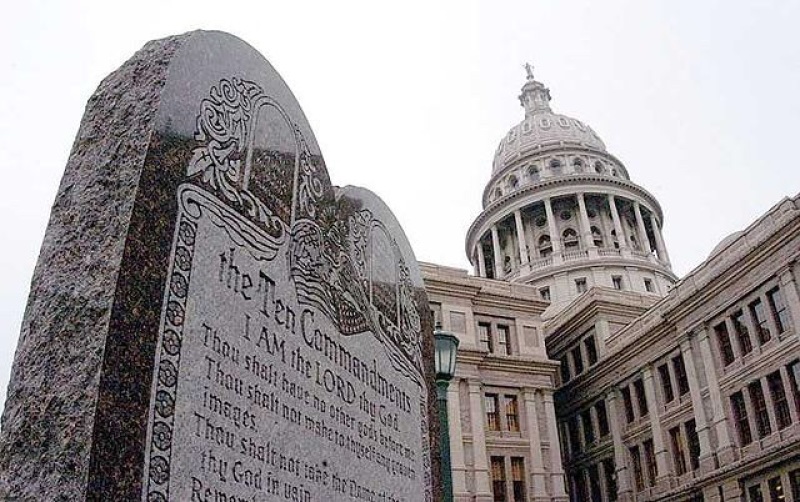
Oklahoma's Supreme Court (OSC) made a decision by a 7-2 vote in favor of removing the Ten Commandments Monument from the state's Capitol grounds in the case of Prescott vs. Oklahoma Capitol Preservation Commission on Tuesday, June 30. The basis for the Court's decision is found in Article 2, Section 5 of the State Constitution.
"As concerns the "historic purpose" justification, the Ten Commandments are obviously religious in nature and are an integral part of the Jewish and Christian faiths," stated the OSC. "Because the monument at issue operates for the use, benefit or support of a sect or system of religion, it violates Article 2, Section 5 of the Oklahoma Constitution and is enjoined and shall be removed."
The monument is a 6' tall granite statue located about 10' away from the state's Capitol building. It has the Bible's Ten Commandments chiseled into it. It was constructed through private funding in 2012. The monument is nearly identical to the one at the Texas Capitol building.
"Many of these monuments and plaques depict both the secular and spiritual history of Oklahoma," said Judge Thomas Prince from the Oklahoma County District . "In short, the evidence demonstrates that the Ten Commandments Monument is one of many monuments and works of art, all rich with symbolism (some religious), that dot the Capitol Grounds."
Three state residents Bruce Prescott, James Huff, and Cheryl Franklin filed a petition for the removal of the monument in August 2013. The request was overturned by Prince in September 2014. The American Civil Liberties Union of Oklahoma (ACLU) which represented the plaintiffs in court appealed to the OSC to reconsider.
Following Tuesday's decision, Attorney General Scott Pruitt said that the defendants will file a petition for a court rehearing of the case. Pruitt will also request a pause on the removal of the monument until the court considers the new petition for rehearing. There are open talks of repealing Article 2, Section 5.
"Quite simply, the Oklahoma Supreme Court got it wrong. The court completely ignored the profound historical impact of the Ten Commandments on the foundation of Western law. Furthermore, the court's incorrect interpretation of Article 2, Section 5 contradicts previous rulings of the court," stated Pruitt.
Article 2, Section 5:
"No public money or property shall ever be appropriated, applied, donated, or used, directly or indirectly, for the use, benefit, or support of any sect, church, denomination, or system of religion, or for the use, benefit, or support of any priest, preacher, minister, or other religious teacher or dignitary, or sectarian institution as such."



















